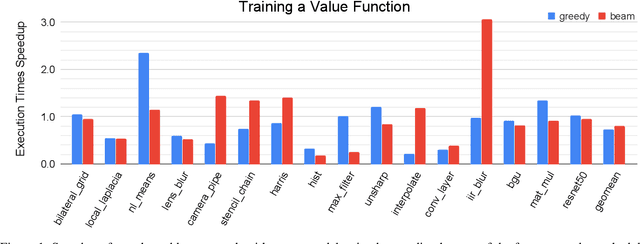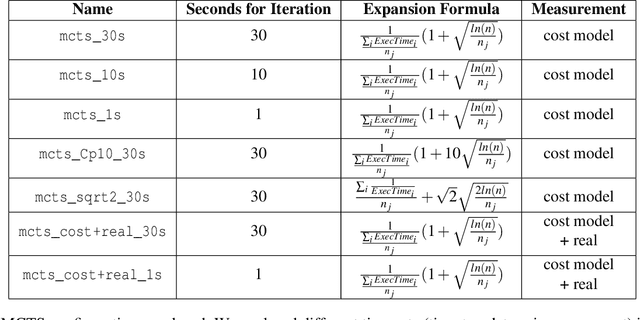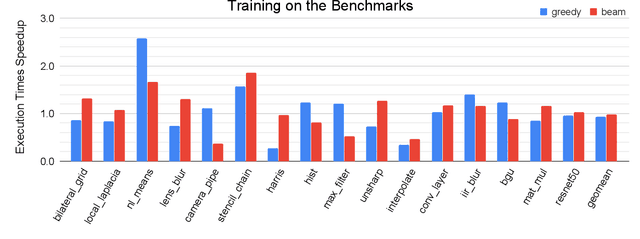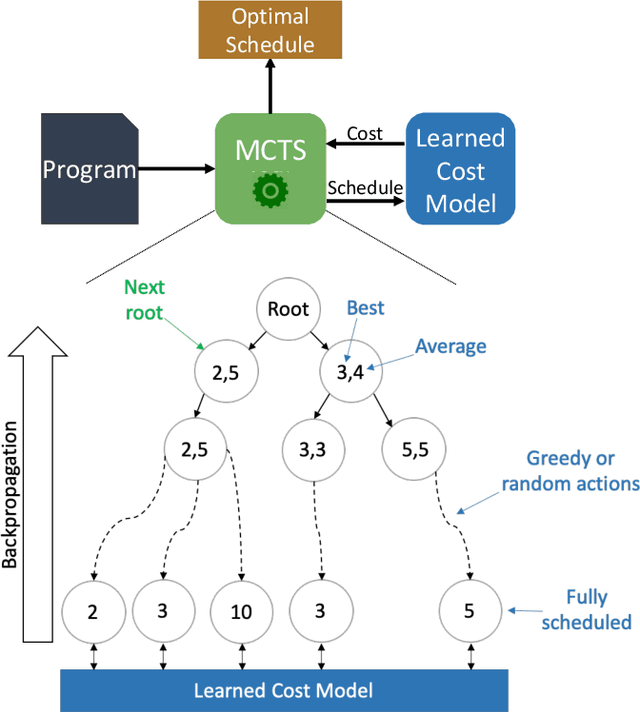ProTuner: Tuning Programs with Monte Carlo Tree Search
Paper and Code
May 27, 2020



We explore applying the Monte Carlo Tree Search (MCTS) algorithm in a notoriously difficult task: tuning programs for high-performance deep learning and image processing. We build our framework on top of Halide and show that MCTS can outperform the state-of-the-art beam-search algorithm. Unlike beam search, which is guided by greedy intermediate performance comparisons between partial and less meaningful schedules, MCTS compares complete schedules and looks ahead before making any intermediate scheduling decision. We further explore modifications to the standard MCTS algorithm as well as combining real execution time measurements with the cost model. Our results show that MCTS can outperform beam search on a suite of 16 real benchmarks.
 Add to Chrome
Add to Chrome Add to Firefox
Add to Firefox Add to Edge
Add to Edge